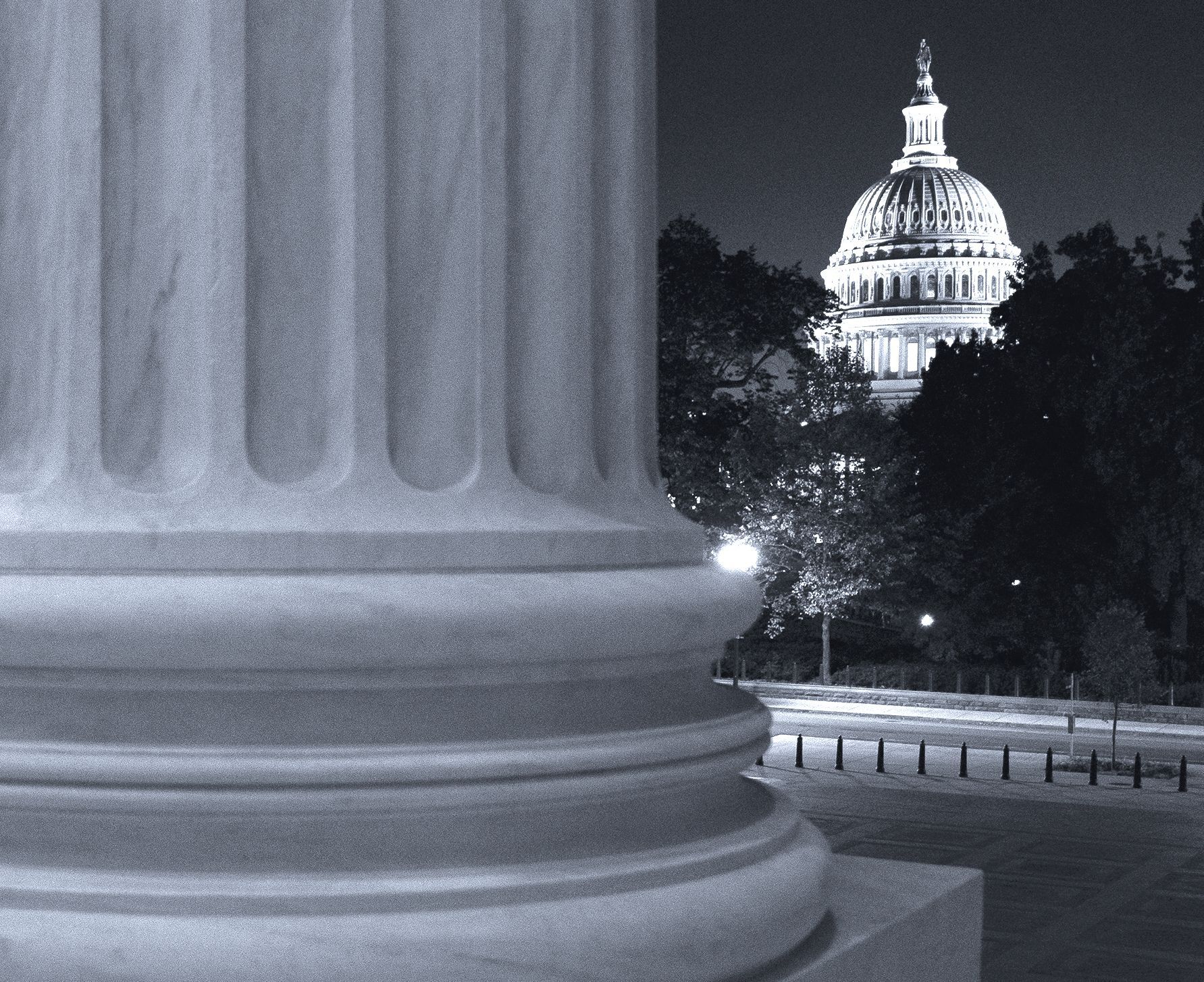
In January 2021, President Biden was sworn into office and for the first time in a decade, Democrats assumed control of both chambers of Congress. Notwithstanding these changes, the U.S. government has continued to rely on economic sanctions. Like his Republican predecessor, President Biden has embraced sanctions as a key component of his administration's foreign policy. During the last year, the U.S. government has unveiled significant new sanctions directed at China, Russia, and Belarus, and maintained sanctions imposed by the Trump administration on Iran. In addition, the Office of Foreign Assets Control (OFAC) published a Hong Kong Business Advisory and sanctions compliance guidance for the virtual currency industry. Last year was also significant from a sanctions enforcement perspective as OFAC resolved 20 separate matters and collected nearly $21 million in civil penalties.
1. Policy Developments
a. China
Over the past year, President Biden has rescinded some actions targeting China taken by President Trump, including revoking and replacing Executive Orders that imposed restrictions on TikTok and WeChat. In addition, President Biden materially altered, narrowed, and renamed a series of sanctions Trump levied shortly before leaving office on Chinese companies determined by the Department of Defense and OFAC to be Communist Chinese Military Companies (CCMCs). After the Biden administration's changes, the sanctions now target only Chinese companies thought to operate in the defense and surveillance technology sectors (so-called Chinese Military-Industrial Complex Companies (CMICs)). Although the Biden administration has limited or revoked sanctions and other restrictions that President Trump imposed on Chinese companies, the administration's approach has not been entirely conciliatory.
Throughout 2021, the Biden administration showed its intention to continue to focus on restrictions on China and Chinese companies including through the imposition of additional sanctions. Shortly after taking office, President Biden imposed list-based sanctions on Chinese government officials for participating in activities that undermine the peace, security, stability, and autonomy of Hong Kong. In July, OFAC also imposed sanctions on Chinese government officials who were deemed to have undermined democracy in Hong Kong and published a Hong Kong Business Advisory highlighting the sanctions risks associated with doing business in Hong Kong. In December, OFAC identified nine companies as CMICs after determining they produce products used to track ethnic minorities in China. Somewhat similarly, the Department of Commerce has continued to add Chinese companies to the Entity List, which restricts these companies from accessing U.S.-origin products and technology.
b. Iran
Since the United States' withdrawal from the Joint Comprehensive Plan of Action (the JCPOA) in 2018, Iran has breached its obligations under the JCPOA by increasing the number of advanced centrifuges it operates and enriching uranium above proscribed limits. Notwithstanding the United States' exit and Iran's repeated violations of the JCPOA's terms, the United Kingdom, France, and Germany have continued to maintain that the JCPOA remains in force.
In early 2021, the United States and Iran engaged in indirect discussions to explore reviving the JCPOA. The two sides were unable to find common ground and ultimately suspended negotiations in the spring. In June 2021, Iran elected a new President, Ebrahim Raisi, who has been a long-standing critic of the JCPOA.
In late November, indirect talks resumed between the United States and Iran. The parties have not yet reached an agreement, and no deal appears imminent. The United States and Iran seem to be at odds over numerous issues, including which side should move first (i.e., the United States lifting sanctions or Iran complying with the terms of the JCPOA), the scope of the agreement (i.e., limited to nuclear proliferation or including missile proliferation as well), and the parties' future commitments to comply with any new agreement (i.e., Iran is seeking a guarantee that the U.S. government would not withdraw again in the future). The number of open issues suggests that it may be difficult for the United States and Iran to find common ground on a new agreement.
c. Russia
In March, the State Department, OFAC, and the Commerce Department unveiled a series of new sanctions and export controls directed at Russia. In response to the attempted assassination of the opposition leader Alexei Navalny, the State Department levied new sanctions on Russia pursuant to the Chemical and Biological Weapons Control and Warfare Elimination Act of 1991 (the CBW Act) and removed some previously issued waivers that had been granted under that legislation. (The CBW Act sanctions subsequently were expanded in August 2020.) The State Department also designated various Russian government agencies and individuals for engaging in weapons of mass destruction proliferation activities, and added six entities to the CAATSA Section 231 List of Specified Persons that operate in Russia's defense and intelligence sector. Concurrent with these actions, OFAC imposed list-based sanctions on seven Russian officials for their involvement with Navalny, and the Department of Commerce added 14 Russian companies to the Entity List.
In April, President Biden issued Executive Order 14024, which authorizes OFAC to impose sanctions on persons engaged in a wide variety of activities related to Russia. OFAC concurrently published a directive pursuant to this Executive Order that prohibits "U.S. financial institutions" from: i) participating in the primary market for bonds issued after June 14, 2021, or ii) otherwise lending any funds to the Central Bank of the Russian Federation, the National Wealth Fund of the Russian Federation, or the Ministry of Finance of the Russian Federation. OFAC explained in guidance that the 50 percent rule does not apply and that these sanctions do not prohibit U.S. persons from participating in secondary market transactions involving the relevant debt. Ultimately, the impact of these new sanctions has been minimal as the sanctions issued under the 2019 CBW Act Directives already prohibited "U.S. financial institutions" from participating in the primary market for non-ruble denominated bonds and lending non-ruble funds to the Russian sovereign.
In May, the U.S. State Department submitted a report to Congress explaining that four vessels, five entities, and one individual had engaged in sanctionable conduct in connection with the construction of the Nord Stream 2 pipeline. However, the State Department elected not to impose sanctions on Nord Stream 2 AG, its CEO, or other company officers because waiving these sanctions was in the United States' national interest. In July, the United States and Germany announced an agreement to allow the completion of the Nord Stream 2 pipeline. Even after this agreement, the U.S. government has continued to impose sanctions on other parties involved with Nord Stream 2, and senior U.S. government officials have stated their opposition to the pipeline.
d. Virtual Currency
During this past year, OFAC showed an increased interest in sanctions issues related to cryptocurrency. In October, OFAC published guidance aimed at assisting the virtual currency industry to identify and address potential sanctions-related issues. OFAC noted that it strongly encourages virtual currency industry participants to implement risk-based sanctions compliance programs that potentially include conducting restricted party screening on customers, IP addresses, and other identifying information associated with virtual currency transactions.
For the first time, OFAC imposed list-based sanctions on a virtual currency exchange for its purported role in facilitating ransomware transactions. OFAC also resolved a series of enforcement actions against parties involved in the virtual currency industry and published an updated advisory on the potential sanctions risks associated with facilitating ransomware payments.
e. Belarus
In 2021, OFAC expanded its Belarusian sanctions program. In April, OFAC revoked a long-standing general license that authorized U.S. persons to carry out business with nine sanctioned Belarusian entities. In August, President Biden issued Executive Order 14038 that authorizes sanctions on persons responsible for suppressing democracy and other freedoms, including individuals responsible for Belarus' 2020 presidential election. Concurrent with the publication of this Executive Order, OFAC designated 23 individuals and 21 entities, including individuals and entities that act as "wallets" for the Lukashenka regime. The United States coordinated its actions with United Kingdom and Canada.
In December, OFAC further ratcheted up the Belarusian sanctions by designating additional individuals and entities, and publishing Directive 1 pursuant to Executive Order 14038. This directive prohibits U.S. persons from engaging in all transactions in, providing financing for, and participating in other dealings in new debt with a maturity of greater than 90 days issued on or after December 2, 2021 by Belarus' Ministry of Finance or the Development Bank of the Republic of Belarus. OFAC clarified that: i) these sectoral sanctions prohibit U.S. persons from dealing in relevant new debt on both the primary and secondary markets; ii) the 50 percent rule does not apply to these sanctions; and iii) U.S. persons are prohibited from entering into derivatives contracts whose value is linked to debt issued by the Belarus' Ministry of Finance or the Development Bank of the Republic of Belarus.
f. Rise of Countermeasures
Other countries and international organizations have responded by adopting various countermeasures that seek to blunt the effectiveness of U.S. sanctions or deter the U.S. government from issuing new sanctions. The European Union's blocking statute—which prohibits EU operators from complying with requirements or prohibitions in certain U.S. sanctions programs directed at Cuba and Iran—is the most widely known countermeasure. Although the EU blocking statute has not been widely enforced in the past, a recent Court of Justice of the European Union (the CJEU) opinion may result in more civil claims being brought against parties for allegedly violating this law. In a December judgment, the CJEU held that if a claimant in a civil proceeding presents prima facie evidence that an EU operator terminated an agreement to comply with relevant U.S. sanctions, the EU operator will bear the burden of establishing that they did not terminate the relevant contract to comply with U.S. sanctions. EU operators who are unable to meet this burden may be ordered to continue performing under the relevant contract.
Other countries are increasingly turning to countermeasures as well. Following the publication of the Unreliable Entity List in 2020, in early 2021 the Chinese government adopted "Rules on Counteracting Unjustified Extraterritorial Application of Foreign Legislation and Other Measures," which provides the framework for a blocking law that prohibits compliance with certain foreign sanctions programs. Most recently, China has enacted the Anti-Foreign Sanctions Law that authorizes Chinese government agencies to impose sanctions on persons determined to have played a role in developing, issuing, or implementing another country's sanctions targeting China. In July 2021, China utilized this law to impose sanctions on six U.S. individuals (including former U.S. Commerce Secretary Wilbur Ross) and one entity in response to sanctions the U.S. government levied on seven Chinese government officials in Hong Kong.
2. Enforcement Trends
a. Settlement Metrics
During the last year, OFAC entered into settlements with 17 entities and one individual and imposed a finding of violation on a financial institution. OFAC collected nearly $21 million in civil monetary penalties stemming from these actions. More than half of these matters stemmed from parties submitting voluntary self-disclosures to the agency. OFAC concluded that only three of these matters involved egregious sanctions violations.
b. Iran Sanctions Violations
Consistent with recent trends, OFAC focused its enforcement efforts on its Iranian sanctions. A majority of OFAC's settlements during the past year involved parties resolving potential liability arising from potential violations of the Iranian Transactions and Sanctions Regulations (the ITSR). Several U.S. persons apparently violated the ITSR by exporting products to a non-sanctioned third party with knowledge or reason to know that the products would be re-exported to Iran, and multiple non-U.S. persons faced liability by causing U.S. persons to violate the ITSR.
c. Non-U.S. Entities
Of the 18 settlement agreements OFAC entered into, eight were with non-U.S. entities. The non-U.S. entities ran afoul of U.S. sanctions for different reasons, including: 1) processing payments through the U.S. financial system that involved sanctioned persons, and 2) causing U.S. persons to violate applicable sanctions. OFAC's focus on non-U.S. entities illustrates the broad jurisdictional reach of many U.S. sanctions programs and highlights OFAC's willingness to initiate enforcement actions against non-U.S. companies.
d. Multiple Enforcement Actions Stemming from the Same Transaction
OFAC brought enforcement actions against multiple parties that participated in the same underlying violative transactions. For example, OFAC penalized the U.S. company UniControl, Inc. for exporting air pressure switches from the United States to a European counterparty with reason to know that the products were intended specifically for reexportation to Iran. OFAC also brought an enforcement action against the Italian company Nordgas S.r.l. for knowingly purchasing air pressure switches that were intended for reexport to Iran. Although OFAC did not expressly state that both matters arose from the same set of transactions, the facts strongly suggest that this was the case. Similarly, OFAC resolved enforcement actions against one Alfa Laval entity based in Dubai and another Alfa Laval entity organized under U.S. law in connection with Alfa Laval's dealings with Iran.
3. Conclusion
Both the 2021 sanctions trends as well as OFAC enforcement show that the Biden administration has continued to use economic sanctions as a foreign policy tool and OFAC has continued to emphasize pursuing sanctions violators. The past year's developments also suggest that, as we have seen over the last 20 years, economic sanctions will continue to be an increasingly critical component of U.S. foreign policy in 2022 and beyond.
For questions regarding these new sanctions or sanctions/export controls more generally, please contact Michael Casey, Josephine Aiello LeBeau, Anne Seymour, Jahna Hartwig, or another member of Wilson Sonsini's national security practice.
- Privacy Policy
- Terms of Use
- Accessibility



